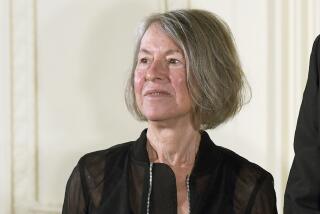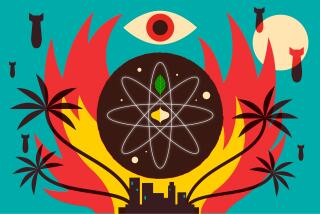Winter of discontent
WHEN Hades kidnaps Persephone, the daughter of the goddess of agriculture, Demeter, the world plunges into winter until Zeus intervenes, demanding that Hades return the girl. But Hades has fed Persephone the fruit of the underworld and she must come back to him for several months each year. The simplest interpretation of this myth is that it provides an explanation for the changing seasons.
For Victorian poet Algernon Swinburne, the myth spoke of the inevitability of loss. He writes in his hymn to Persephone, “I have lived long enough, having seen one thing, that love hath an end.” Other writers have used the myth to explore familial relationships, female sexuality and the nature of death.
Contemporary poets remain fascinated by this and other ancient myths because they offer almost limitless interpretive possibilities, as well as avenues to explain and explore phenomena outside the constraints of modern empiricism. Louise Gluck, who draws heavily on this myth in her latest collection, “Averno,” writes
So we have to believe in the girl,
in what she did. Otherwise
it’s just forces we don’t understand
ruling the earth.
Gluck, whose numerous books of poetry include the Pulitzer Prize-winning “The Wild Iris,” writes with an aching precision in these spare and elegant pieces. Her gloss of the Persephone myth in 17 interlocking poems is in the same vein as Swinburne -- bleak, full of death, loss and the impossibility of finding comfort in art, nature or companionship. The poems pass through blighted landscapes of burnt fields and lakes locked in ice. For Gluck, this myth is a cautionary tale about human attachment, showing us that there is no safety anywhere.
In the opening poem, “The Night Migrations,” one of many about the grinding change of seasons, the speaker watches birds:
It grieves me to think
the dead won’t see them --
these things we depend on,
they disappear
What will the soul do for solace then?
Gluck writes with a raw, emotional intensity and then she drifts back, regarding her subjects from a detached, scholarly view. The two perspectives provide an interesting counterpoint and allow her to explore the myth from multiple angles. At times, her unflinching approach to the story of Persephone imbues her writing with an uncommon power. She writes of Hades,
He wants to say I love you, nothing can hurt you
but he thinks
this is a lie, so he says in the end
you’re dead, nothing can hurt you
which seems to him
a more promising beginning, more true.
Throughout the book, Gluck debates the utility of myth and poetry, suggesting at one point that we look for comfort in art and use myth to feel less powerless in the face of the forces of nature.
you are not alone,
the poem said,
in the dark tunnel.
But she also challenges the idea that art can provide solace:
as though it were the artist’s
duty to create
hope, but out of what? what?
the word itself
false ...
Taken as a whole, the resigned despair of the book can be daunting and occasionally tedious. Often the more abstract lines read like opaque cryptograms: “But ignorance / cannot will knowledge. Ignorance / wills something imagined, which it believes exists.”
But mostly Gluck’s refusal to provide signposts creates a compelling sense of deep mystery. Her poems are haunting narrative fragments, the after-effects of an unnamed tragedy with shadowy interlocutors.
A story that resurfaces throughout the book is of a young girl who inexplicably sets fire to a wheat field: “One match is all it took. / But at the right time -- it had to be the right time. / The field parched, dry -- / the deadness in place already / so to speak.”
There are echoes of the Persephone myth in this tale as the field regenerates, but the farmer has moved away. In Gluck’s version of the myth, the daughter’s return does not offer healing; rather, she writes, “It does me no good; violence has changed me.”
Ancient myths are written in a universal language of symbols and archetypes. Scholar Joseph Campbell wrote, “In devising myths appropriate for our times, it is the poets who have to awaken us.” In “Averno,” Gluck acknowledges that such myths arise from a stubborn human need to make meaning out of the seemingly inexplicable acts of nature, but she also rejects this impulse, because the story offers false comfort. For Gluck, poets are the guilty party, complicit in this meaning-making project. It sets up a fascinating dissonance that she at once writes about and against myth.
To such endless impressions
we poets give ourselves absolutely,
making, in silence, omen of mere event,
until the world reflects the deepest needs of the
soul.
More to Read
Sign up for our Book Club newsletter
Get the latest news, events and more from the Los Angeles Times Book Club, and help us get L.A. reading and talking.
You may occasionally receive promotional content from the Los Angeles Times.







